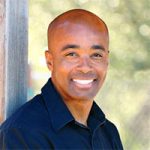
Barry Franklin
 Forensic Science Professors to Follow
Forensic Science Professors to FollowForensic science is an umbrella term for the field of forensics, as it refers to the application of various sciences and technologies to help collect evidence and investigate cases for the legal matters. Forensic scientists can range from crime laboratory analysts to psychologists, and they all have specialized industry skills and knowledge to apply towards their area of study. Deciding which direction you want to take can sometimes be tricky, which is why we’ve compiled a list of the top forensic science professors nationwide. These professors have not only proved their work in the field to be monumental to the future of forensic science, but are always advancing the field with new research and programs to help spread awareness and participation in the field. Who knows – one of these forensic science professors could just end up being your future instructor, or better yet, academic mentor.
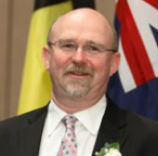
Dr. Logan, Program Director of the Forensic Toxicology program at Thomas Jefferson University, has a specific interest in toxicology related to driving while impaired by drugs or alcohol. His YouTube video notes that much of his training is in analytical chemistry, pharmacology and toxicology. His former experience includes serving for 19 years as a state toxicologist in Washington. In addition, he’s testified in more than 200 civil and criminal hearings in both state and federal court and has had more than 80 peer-review pieces published. He is certified by the American Board of Forensic Toxicology and is President of the American Academy of Forensic Sciences.
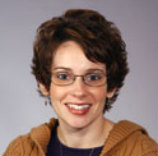
Dr. Dawson is the graduate director of Forensic Science and Biology at Virginia Commonwealth University as well as an associate professor. She manages VCU’s molecular biology research laboratory and previously was employed at Fairfax Identity Laboratories, identifying new DNA testing techniques for use in forensic case analysis. Among many professional roles is her current position as President of the Mid-Atlantic Association of Forensic Sciences. Among others, she is a member of the American Society of Crime Lab Directors and the International Association for Identification. She has also been named a commissioner on the Forensic Science Education Programs Accreditation Commission, which accredits universities that provide forensic science degrees.
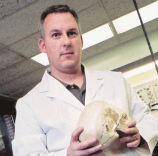
Dr. Crist is a professor of anatomy and anthropology at the Forensic Anthropology Field School at Utica College in N.Y. He helped co-found the American Academy of Forensic Science’s Young Forensic Scientists Forum, served as forensic anthropologist for the Philadelphia Medical Examiner’s Office, and helped identify remains of victims from the 2001 World Trade Center attack. As well, he’s helped with more than 20 historical cemetery excavations in the U.S. , including at the Wampanoag Burial Ground at Martha’s Vineyard. He’s directed excavation on a number of other projects, and two of Dr. Crist’s excavations were featured on the Discover Health Channel series “Skeleton Stories” in 2006.
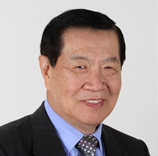
Dr. Lee, a professor in the – yes - Henry C. Lee College of Criminal Justice and Forensic Sciences at the University of New Haven in Connecticut has an impressive profile. He has served as a forensics expert in every state in the U.S. as well as in 30 countries, according to the school website. He has assisted more than 600 law enforcement agencies in crime-solving and testified more than 1,000 times in criminal and civil cases in the U.S. or internationally, the school also notes. He has provided forensic science assistance in cases like the homicide of Jon Benet Ramsey and the death of Chandra Levy as well as providing his training into the investigation in the suicide of Vince Foster, former President Bill Clinton's White House attorney. His personal website indicates that he is skilled in finding the tiniest of clues. As well, he has authored or co-authored a vast number of publications or books, including “Henry Lee’s Crime Scene Handbook,” and he has received five honorary doctoral degrees.
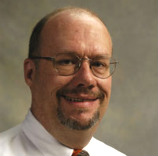
Dr. McCoy is an associate professor for the Forensic Science Institute and the School of Criminal Justice at the University of Central Oklahoma. His previous professional experience includes 20-years-plus with the Oklahoma State Bureau of Investigations, or OSBI, where he undertook investigations in a wide variety of criminal cases that ranged from embezzlement to homicide and public corruption to rape. According to the school website, he was also the first to lead the state’s Computer Crime Unit and it may have been this interest that led to his 2012 award as a Fulbright Scholar in Information Technology/Digital Forensics Like many other forensic science professors, however, Dr. McCoy also served hard duty: he was an officer in the Tulsa Police Department and an officer in the U.S. Marine Corps.
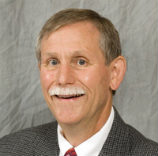
In the spring of 2013, Dr. Baxendale became the director of the Forensic Science Degree program at the University of Nebraska, Lincoln. His background includes 30 years of experience in professional entomology (the study of insects) and he has worked with area police departments, sheriff’s offices, and the regional FBI office on death investigations by utilizing his forensic entomology skills to provide details and evidence about found bodies. Baxendale has published more than 350 research and extension articles and brought in more than $5 million in grant-in-aid funding or competitive grants that have been used for research, extension programs, or education, according to the school website. He is also certified as an expert witness in forensic entomology.
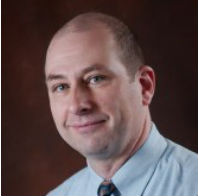
Ralph Ristenbatt is a criminalist and senior instructor in the Forensic Science Program at Penn State University. He’s taught classes such as Essential Practices of Forensic Science and Scientific Approach to Crime Scene Investigation, and also was an instructor at John Jay College of Criminal Justice and Pace University in the past. He was formerly employed with New York City’s Office of Chief Medical Examiner analyzing serological evidence in sexual assault and homicide cases. He also acted as team supervisor for the city’s Forensic Analysis and Reconstruction Unit. He has worked on more then 300 crime scene reconstructions and testified in court approximately 50 times. He’s given an extensive number of presentations and has many professional affiliations and certifications including as a diplomate with the American Board of Criminalistics. Mr Ristenbatt's research interests revolve around the technologies and techniques associated with crime scene investigations, with a particular interest in bloodstain pattern analysis.
In researching and selecting candidates to include in our list, we took a number of things into consideration. Not all of the professors on this list met each of the criteria below, but most met several of the listed guidelines:
Each of the forensic science professors on this list are actively engaged in teaching, lecturing and presenting for college and professional audiences. As well, several have been responsible for launching or leading the development of forensic science programs at their schools.
Most of the professors on this list have released a number of journal articles or books for publication or contributed or co-authored others.
As well, many do outreach in the community by providing lectures, undertaking speaking engagements or participating in tasks that promote the importance of forensic science.
The vast number or professors on this list are involved with or belong to some type of association. Many of these professors are members of multiple organizations or have served on them or been recognized or contributed in other ways.
Many of our “top-rated” professors are considered leaders in the field of forensic science simply by starting a new program at their school or in the field, contributing to or expanding forensic science, or by participating in the investigation of significant, high-profile cases.

Barry Franklin
Before co-founding Sechel Ventures Partners LLC, Barry Franklin was a VP at a Silicon Valley software company. He is an investor and advisor for DataSimply and Impellia. Barry believes that education and lifelong learning are paramount. Barry met his wife at Carnegie Mellon University and they have two beautiful daughters. He also volunteers for various committees at his kids’ high school.